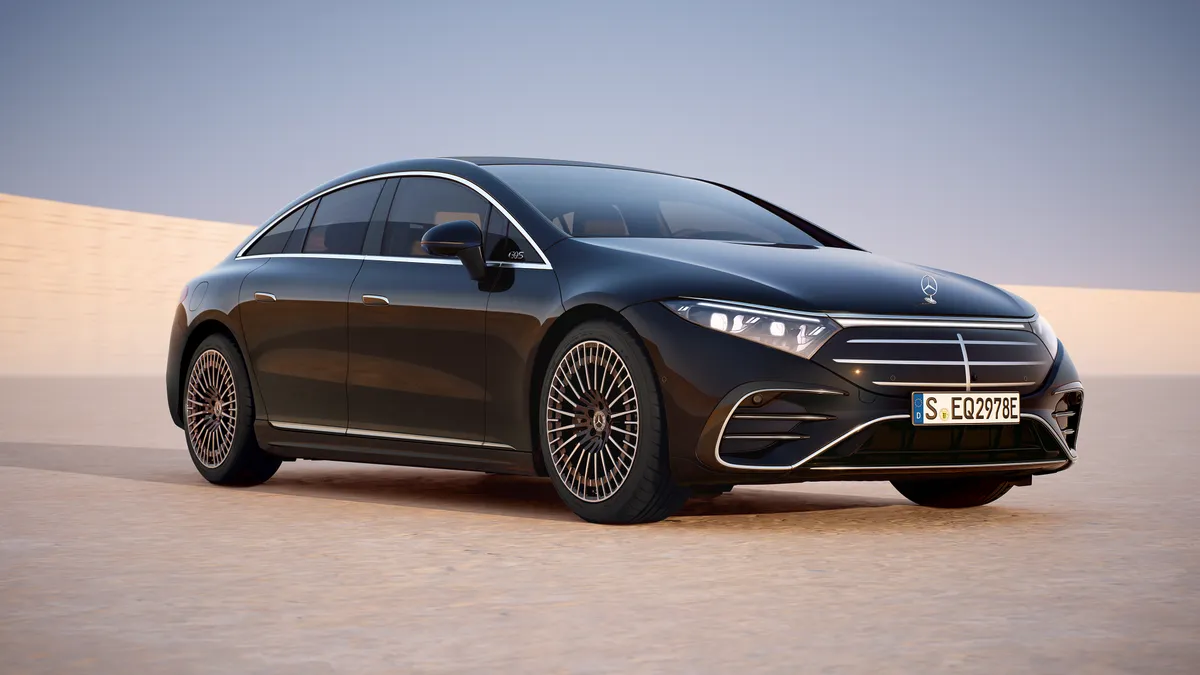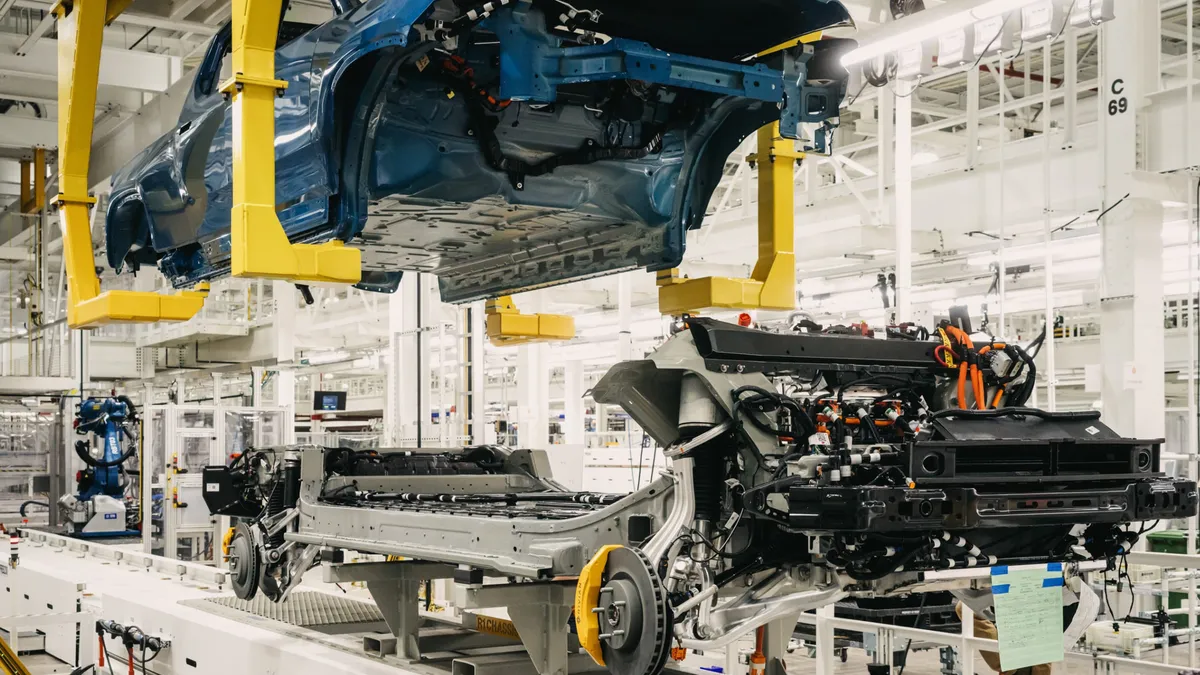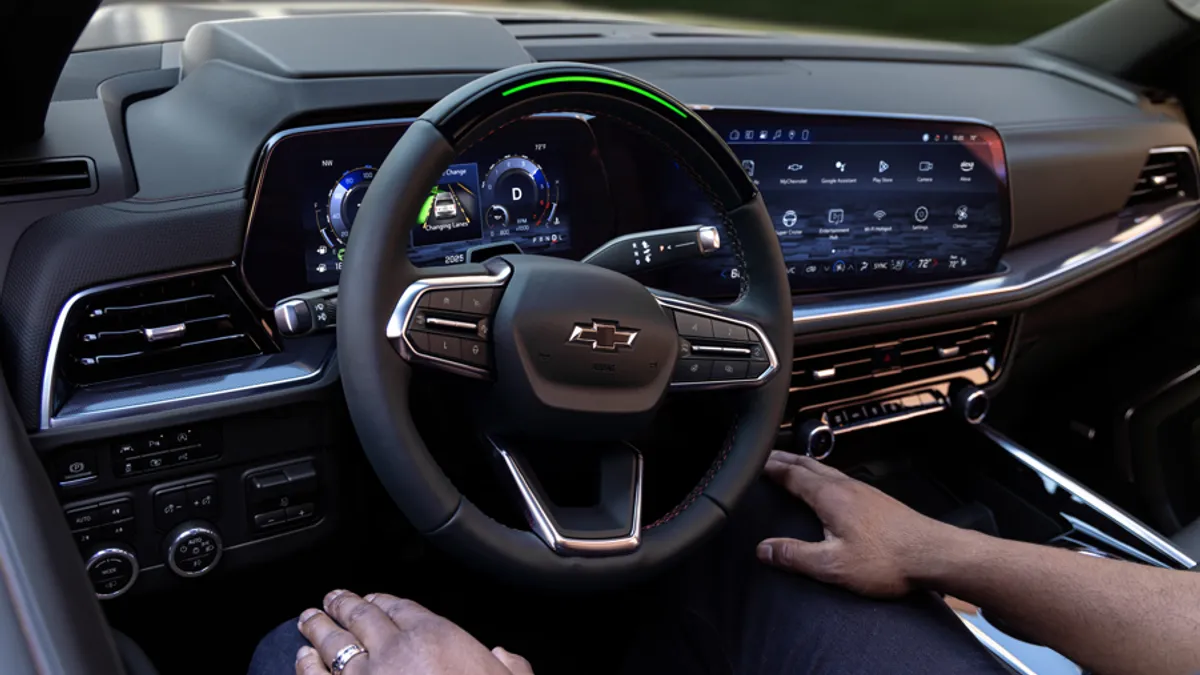Dive Brief:
- Mercedes-Benz Group and battery technology company Factorial have developed a lighter and more energy-dense solid-state battery that could improve the safety and performance of electric vehicles, per a Sept. 10 press release.
- Factorial’s solid-state battery, dubbed the “Solstice”, can extend the range of EVs up to 80% to around 600 miles compared to current lithium ion batteries, according to the company.
- Mercedes-Benz entered into a joint development agreement with Factorial in 2021 and led a $200 million investment round in the company in 2022 together with Stellantis.
Dive Insight:
The battery breakthrough announcement follows the delivery of the first B-sample battery cells to Mercedes-Benz in June.
The Solstice battery’s cathode material is manufactured using a novel dry coating process that eliminates the need for hazardous solvents typically used in traditional battery production, according to Factorial. These batteries can also be manufactured on existing lithium-ion battery production lines for quick scaling, Factorial CEO and co-founder Siyu Huang told Reuters.
The Solstice battery's sulfide-based solid-state electrolyte also reduces the risk of thermal runaway and potential fires associated with more flammable liquid electrolyte battery designs.
Factorial says its Solstice battery maintains stability at operating temperatures over 90°C (194 degrees Fahrenheit), according to the Sept. 10 release. In addition to improving safety, this level of thermal stability could potentially reduce the cooling system requirements of EVs, which can help reduce costs.
"Solstice embodies our team’s technology leadership and the potential of solid-state batteries to address the most significant hurdles for electric vehicle adoption," Huang said in the release.
Factorial was launched out of Cornell University in 2013, according to its website. The company emerged from stealth in 2021 after announcing its first graphite anode battery prototype.
In addition to Mercedes-Benz, Factorial also has joint development agreements with Stellantis, Hyundai Motor Co. and Kia Corp., according to a June 5 press release. The company expects to make its battery technology available to other automotive OEMs and consumer electronics customers by decade's end.
Along with Factorial, other companies are partnering to develop solid-state battery technology, including QuantumScape and Volkswagen. Toyota Motor Corp. is also researching solid-state battery technology for its future EVs.














